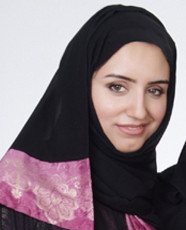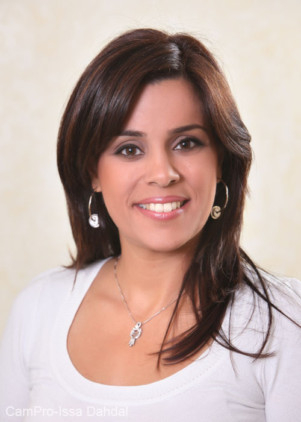
16:15 Gulf News: There is no good reason for children to be out unaccompanied late at night, it is better they are at home.
16:16 Aisha Abdul Noor Al Janahi: I support parental curfews. Adolescents have a higher tolerance of risks and ignore them a lot more than parents. That is what a curfew is — a safety limit that moderates exposure to late night dangers.
16:18 Jerry Selayro: I grew up with a family that eats dinner together, so I really agree with this. ‘Late at night’ for us was 8pm. That was our curfew. Young children, aged 16 and below, should be at home by then or accompanied by an adult.
16:19 Fatima Khan: I agree with the statement. Nevertheless there are a few instances when a curfew may be relaxed. We have a strict curfew at home. But this does not mean we aren’t allowed the occasional slip. It comes in the way of a treat with friends. It may be once a month or a couple of times over the year. But it is an enjoyable occasion, mostly with a family member close by to ensure safety. At the end of the day, it is better that children are at home with parents – safe and sound.
16:22 Jerry Selayro: But with technology and modern times, parents tend to be lax and children do not have that structure anymore. Which, most of the times, leads to untoward incidents.
16:22 Aisha Abdul Noor Al Janahi: Curfews are not an effort by parents to control or ruin your teenager’s fun but it encourages responsibility and teaches adolescents respect for rules, and later laws, that they may not like or understand.
16:23 Gulf News: A curfew alone won’t make your child behave better.
16:25 Fatima Khan: It is true. However, it will ensure that there are less chances of exposure to the wrong elements. When children are home, parents get more time to engage in conversation with them. They have their own valuable family time. When children are raised in close-knit families, they understand values, morals and principles. They don’t give in to peer pressure easily as they know that they do not need to fit in. They have a loving family that supports their individuality.
16:26 Jerry Selayro: Curfew gives the child a structure at home. This gives him or her a structure in life, in general. If discipline is imposed at home, I believe the child would behave better. Proper structure at home gives parents and children security and discipline
16:27 Aisha Abdul Noor Al Janahi: I completely agree that discipline should be instilled from the early years. We should teach them how to obey rules with love and not fear.
16:31 Fatima Khan: In most cases, there is a general approach of, “I am your parent, I am the boss, so you have to listen to me.” This does not work. Discuss things like two mature individuals. It will make the child realise that he or she is also being involved in making the rules. This will ensure true discipline.
16:33 Gulf News: Children have a right to freedom of movement, curfews criminalise this and call into question the value system imparted by parents.
16:34 Fatima Khan: Yes, children have a freedom to movement but curfews in no way criminalise this. Growing up, children have a right to explore things around them, too. Does this mean that you won’t remove a child from harm’s way? Will you leave a child sitting near an open flame because he or she will eventually realise it is dangerous for them? No. You take your precautions. Children are imparted with a strong value system and curfews in no way question it. However, they need to be under some surveillance. We all take care of what is valuable to us. Similarly, parents can’t leave their most valuable assets open to the elements. Just because no one in the neighbourhood is a thief, you don’t leave your doors unlocked.
16:34 Jerry Selayro: Curfews sound fair to me in all aspects! They give proper structure to the family and to children. But parents should explain why they are being imposed and why the children have to follow. Parents should monitor their children all the time. That is their duty.
16:38 Aisha Abdul Noor Al Janahi: Children do have the right to freedom of movement but they should consider the experience of their parents, too. Parents have a lot more experience than the children, but again this should be done by negotiating as friends and not forcing curfews on children without giving them any rational justification.
16:43 Gulf News: Parents apply curfews simply because that is a traditional system they are familiar and comfortable with.
16:45 Jerry Selayro: Yes, curfews are a very traditional way and parents are very comfortable with it. But with the latest technology, you can actually monitor your child. You can be his follower on Twitter or Facebook. You will find out what is he doing at that right moment! Parents need to be clever in what they are doing. They have to adapt to the modern world.
16:47 Aisha Abdul Noor Al Janahi: Some parents are extremely overprotective and I can see the impact this has on some adults today. Some of them are less confident and always hesitant and not able to make the right decision. They are completely controlled by their parents and that has given them a low self-esteem. We should use curfews moderately and support them with rational justifications.
16:50 Linda Mohajer: I think we need to have an open relationship with our teenagers based on love and frankness. Curfews do not mean much because if children want to do anything wrong, they can do so before the curfew is imposed. I set curfews in terms of care for my children’s health. So, they need to sleep at certain times but it is not a method of controlling them. We speak frankly at home and I tend to know all their friends and the parents of those friends, so I’m comfortable with where they go and what they do.
16:54 Aisha Abdul Noor Al Janahi: Teenagers go through lots of difficulties. We should support them and be very close to them. My son is three years old, but I am trying to allow him to share his opinion and make his own selection of dress, food and toys in his early years . We cannot force rules on them when they are grown up, it becomes difficult then.
16:57 Linda Mohajer: My teenage child is involved in many social projects where she interacts with her peers, who are like-minded and care to do something for society. I think this is an important approach towards dealing with our teenagers where we let their energies out in the right direction for social action rather than looking at them as a rebellious part of the social network until they become mature adults. Parents might tend to be authoritarian or in some cases too permissive. Permissive parents are those who think they should allow their children to do anything they want and think they are friends. I think a balanced approach of having the parental authority in terms of loving guidance ensures success of our parenthood where friendliness and frankness are the dominant part of the relationship.
17:06 Jerry Selayro: I grew up in a family where my parents often explained to us the rules and regulations, including curfews. We grew up in an environment where we ate dinner together at 8pm and if you cannot be there, you have to explain. It might be traditional but we have to follow traditions. All in all, it is love that we share in our family.
- Compiled by Huda Tabrez/Community Web Editor















